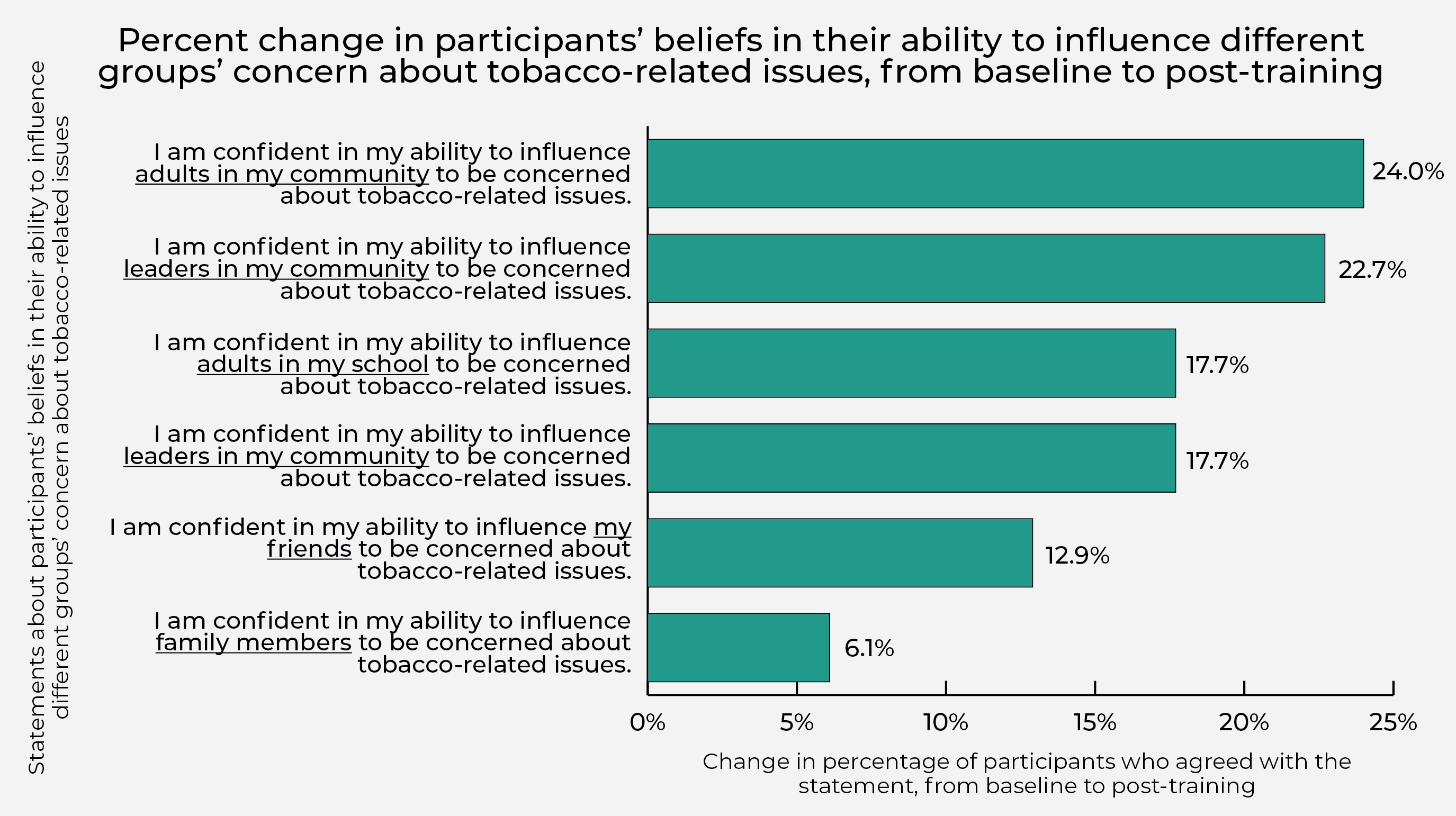ASHES, Vol. 16(11) – Youth engagement and tobacco control: Empowering young people to advocate for policy change
Youth empowerment is an effective public health strategy that can result in improved health and educational outcomes. Empowered youth are actively engaged in decision-making processes and equipped with the skills and resources to make positive improvements on their own lives and within their communities. It is critical that young people be involved in tobacco prevention and control efforts, including advocating for policy change. This week, ASHES reviews an investigation by Melinda J. Ickes and colleagues into the effectiveness of the Youth Tobacco Advocacy Training (YTAT) program, an initiative that aims to empower youth in rural Kentucky to advocate for tobacco control policy.
What was the research question?
What are the effects of a rural youth tobacco advocacy training program on students’ tobacco policy attitudes, interpersonal confidence, advocacy self-efficacy, and self-reported advocacy?
What did the researchers do?
Fifty-four students from three counties in Appalachian Kentucky attended a one-day training that covered topics related to tobacco use, tobacco policies, and policy advocacy skills.1 Participants received booster trainings throughout the school year and developed an action plan to promote tobacco policy advocacy in their schools and communities. They completed a baseline survey prior to the initial training and a post-training survey seven months later. The surveys assessed youth empowerment and policy advocacy (i.e., whether they agreed or not with statements about tobacco policy attitudes, interpersonal confidence, advocacy self-efficacy, and self-reported advocacy). The authors assessed the change in the percentage of participants who agreed with each statement from baseline to post-training.
What did they find?
After the training, more participants felt confident in their ability to influence others to be concerned about tobacco-related issues, including adults in their community (24% increase) and their community leaders (23% increase) (see Figure). From baseline to post-training, more participants felt confident in their ability to advocate for policies to lower tobacco use (74% vs. 91%). More participants felt confident in their ability to select effective advocacy strategies (25% increase) and to develop an action plan (21% increase). They also reported increased engagement in efforts to build support for tobacco policies with various community or school groups (i.e., self-reported advocacy). Self-reported advocacy increased the most with community agencies and government or elected officials.

Figure. The percent change in participants’ beliefs about their ability to influence different groups’ concern about tobacco-related issues, from baseline to post-training. Click image to enlarge.
Why do these findings matter?
Individuals living in rural communities, such as those in Appalachia, are disproportionately impacted by tobacco-related health issues. However, many of these communities have been slow to adopt tobacco control policies. Findings from this study demonstrate the effectiveness of a school-based tobacco advocacy training program tailored towards rural youth in increasing interpersonal confidence, advocacy self-efficacy, and self-reported advocacy related to tobacco control policy. Youth are a critical component of tobacco control and prevention efforts, and empowering young people in rural communities through advocacy training programs may help to make meaningful tobacco-related policy change in these regions.
Every study has limitations. What are the limitations of this study?
This study included only a limited set of participants who, unlike youth more generally, may have been particularly interested in advocacy and therefore more engaged in the initiative. This study was conducted in rural Appalachia, and results may not be generalizable to other populations (e.g., urban/suburban populations).
For more information:
SmokeFreeTeen offers tools and resources for teenagers about quitting and maintaining abstinence from tobacco use. The Centers for Disease Control and Prevention offers information and tips about cigarettes and how to quit. For more information about addiction, visit our Addiction Resources page.
— Kira Landauer, MPH
What do you think? Please use the comment link below to provide feedback on this article.
________________
[1] This program was initially developed and piloted in one high school in rural Kentucky (Phase I). Here we describe Phase II of this initiative, in which the program was scaled up.